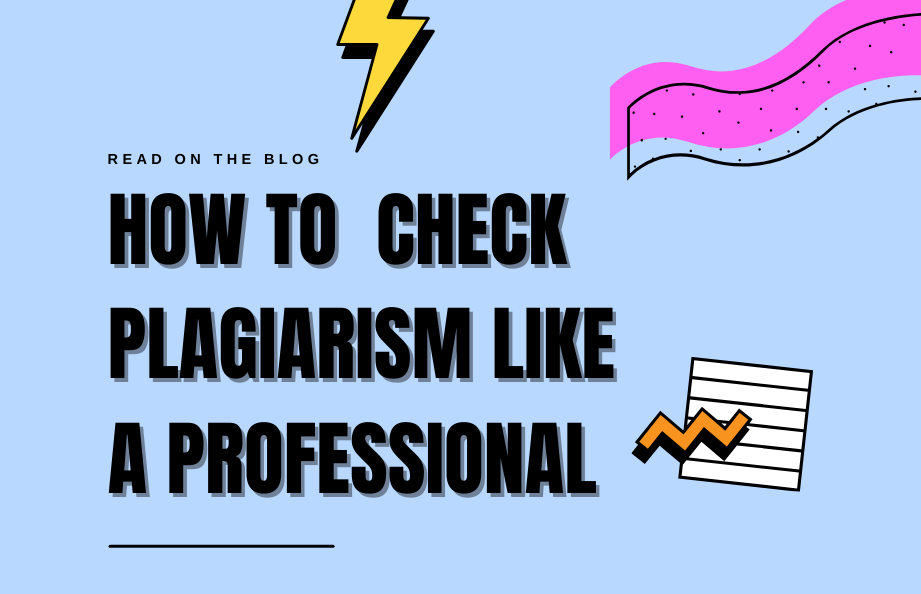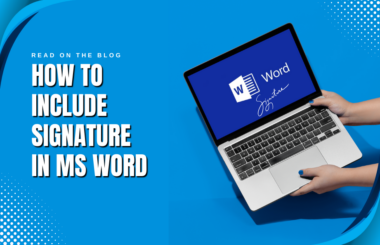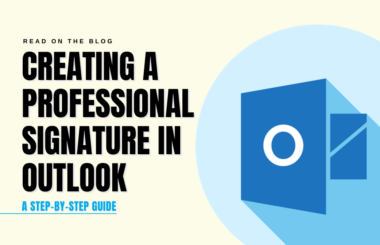In this era of Artificial Intelligence, where knowledge is merely a click away, it’s essential to know how to plagiarism check effectively to maintain the integrity of your content. Whether you’re a student striving for academic honesty, a professional ensuring originality in your reports, or a content creator aiming to provide valuable and unique insights, understanding how to detect and prevent plagiarism is a fundamental skill. Moreover, ensuring originality becomes even more critical if you’ve outsourced your content creation to someone else.
AI content writers have revolutionized the way we create written content, taking the world by storm with their efficiency and productivity. These advanced algorithms generate high-quality content at remarkable speeds, significantly reducing the need for human intervention in content creation. However, their widespread use has also raised concerns about the potential for increased plagiarism, as writers must ensure that the AI-generated content is appropriately and legally sourced and attributed to avoid unintentional plagiarism.
In this guide, we’ll explore the importance of plagiarism checking, actionable strategies to ensure the authenticity of your writing, and different tips and tricks on how to check a plagiarism. Additionally, we’ll introduce you to the best plagiarism checkers and cutting-edge AI content detectors to help you maintain the integrity of your writing.
Understanding Plagiarism
To begin our discussion on plagiarism detection, it’s important to have a clear understanding of what plagiarism means and why it carries such substantial weight.
What is plagiarism?
Plagiarism is the act of using someone else’s words, ideas, or creative work without giving them proper credit or permission. It involves presenting another person’s work as your own, whether intentionally or unintentionally and can occur in various forms, including:
- Direct Copying: Verbatim replication of text or content without quotation marks or proper citation.
- Paraphrasing Without Attribution: Rewriting someone else’s ideas or text in your own words without acknowledging the original source.
- Failure to Cite: Neglecting to provide proper references or citations for borrowed information, such as quotes, statistics, or data.
- Self-Plagiarism: Reusing your own previously published work without proper disclosure or permission, especially in academic and publishing contexts.
Plagiarism is considered unethical and can lead to serious consequences, including damage to one’s reputation, academic penalties, legal actions, and professional repercussions. It’s essential to understand and avoid plagiarism to maintain integrity and honesty in writing and research.
The Importance of Plagiarism Checking
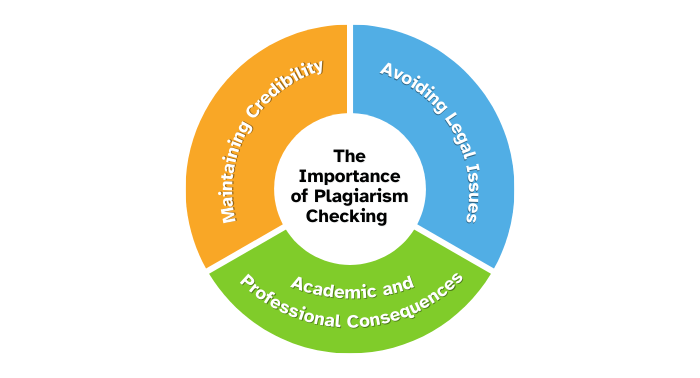
Maintaining Credibility: Original work reflects your expertise and integrity. Plagiarizing other’s work can affect your reputation.
Avoiding Legal Issues: Plagiarism can lead to copyright infringement lawsuits and other legal consequences.
Academic and Professional Consequences: Students can face academic penalties, while professionals may lose their jobs or clients due to plagiarism.
Tips and Techniques for Plagiarism Detection
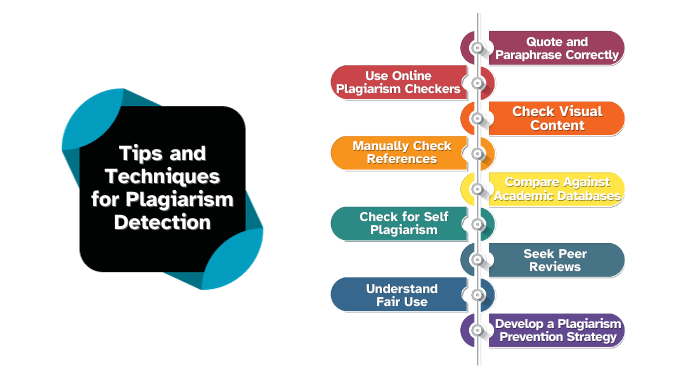
1. Use Online Plagiarism Checkers
In today’s digital age, online plagiarism checkers have become indispensable tools for professionals, students, and writers alike. These tools offer a swift and efficient means of scanning your content to ensure its originality. To ensure that your work is original and unique, there are many tools that can help. These tools quickly and carefully check your content to make sure it’s not copied from somewhere else. You might need to check the content with both plagiarism checkers and AI content Detectors. Follow the links below to find a list of the best free and paid tools you can use.
2. Manually Check References
Don’t forget the importance of manually reviewing your references. Make sure to cite quotes, paraphrased material, and references accurately in a recognized citation style like APA, MLA, or Chicago. This attention to detail ensures the integrity of your work and demonstrates your commitment to academic or professional standards. It also acknowledges the sources that have contributed to your content.
3. Check for Self-Plagiarism
In addition, don’t overlook self-plagiarism. If you’ve previously created similar content, ensure that you’re not unintentionally reusing your work without giving it proper credit. This practice maintains both the originality of your current work and the transparency of your creative process.
4. Understand Fair Use
Gain a solid grasp of the “fair use” concept to discern when it is permissible to utilize someone else’s work without seeking explicit permission. It is essential to comprehend the nuances of copyright law and acknowledge the constraints when using copyrighted content for educational, commentary, or critical purposes.
5. Quote and Paraphrase Correctly
When incorporating external content into your work, adhere to the principles of accurate citation. When you use someone else’s words, make sure to copy them exactly and give them credit. When you’re explaining something in your own words, start with the original idea and say it differently. Don’t forget to mention where you got the idea. This way, you show that you’re not copying, you respect others’ ideas, and you keep things clear in your writing.
6. Check Visual Content:
Don’t just check text for plagiarism; images, charts, and graphics can be plagiarized too. Use reverse image searches to make sure they’re not taken from someone else. This extra step helps keep your work original and avoids copyright problems.
7. Compare Against Academic Databases:
For students and researchers, maintaining academic integrity is paramount. Take an extra step by comparing your work against reputable academic databases such as JSTOR and Google Scholar. This process not only helps you ensure the originality of your work but also validates your research against established scholarly sources, strengthening the credibility and reliability of your academic endeavours.
8. Seek Peer Reviews:
Seeking peer reviews is a valuable practice in maintaining the quality and originality of your work. Don’t hesitate to invite colleagues or peers to assess your content. Their input offers an extra layer of scrutiny, helping to identify any potential issues, ensuring accuracy, and enhancing the overall credibility of your work. Peer reviews can also spark constructive discussions and collaborations, fostering a culture of continuous improvement.
9. Develop a Plagiarism Prevention Strategy:
To prevent plagiarism, make a plan and put it into action at your school or workplace. This strategy can encompass several essential components, such as educating employees or students about the risks and consequences associated with plagiarism. By fostering awareness and providing guidance on ethical content creation, you create an environment where originality and integrity thrive, ultimately upholding the standards of professionalism and academic excellence. Additionally, consider implementing plagiarism-detection tools and clear policies emphasizing the importance of properly citing sources. This comprehensive strategy stresses the significance of moral content creation while greatly lowering the possibility of plagiarism.
Detecting and preventing plagiarism is important for professionals in all fields. By using the tips and techniques we’ve discussed, you can keep your reputation intact, steer clear of legal troubles, and create unique content that shines in a world filled with information. Always prioritize ethical and professional integrity in everything you do, whether it’s in academics or your career.
Best Free and Paid Plagiarism Checkers
Plagiarism checkers employ advanced algorithms to meticulously compare a given piece of text against a vast database of sources, aiding in the detection of any potential instances of plagiarism, even when they are cleverly disguised or paraphrased. Now, it’s time to discover some of the best free and paid plagiarism checkers.
1. Copyscape
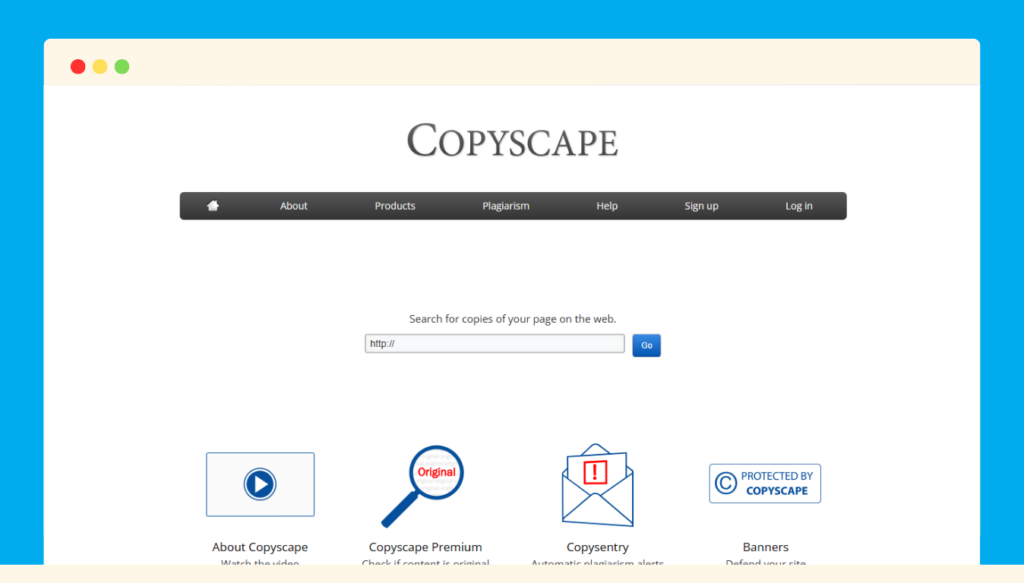
Copyscape is a renowned and invaluable online tool for content creators and website owners aiming to protect their intellectual property and maintain originality. Its primary function is to scan web content and detect instances of plagiarism or unauthorized duplication. Users can simply enter their webpage URL, and Copyscape swiftly searches the internet to identify any matching content. It only shows the top 10 searches in the free plan.
Pricing: Copyscape charges $0.03 per search for the premium version. They also offer a batch search feature at $10 for up to 200 searches.
2. Duplichecker
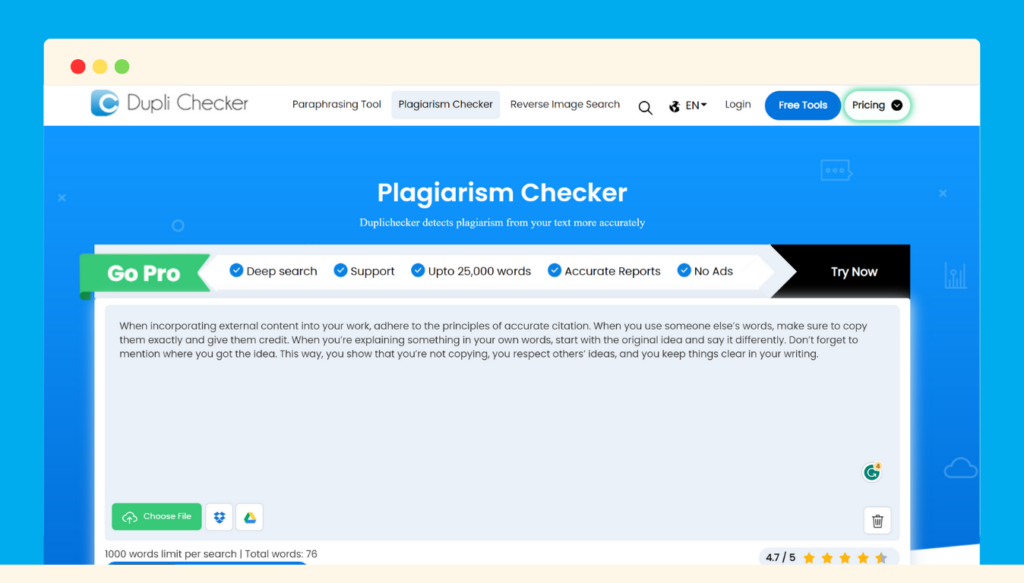
Duplichecker, a handy online tool, is your go-to for keeping your content legit and plagiarism-free. It has a user-friendly interface, and the best part? It won’t cost you a dime! While it’s not the most advanced plagiarism checker out there, it’s perfect for quick checks and peace of mind without breaking the bank. So, if you’re looking for a casual, budget-friendly way to ensure your content’s uniqueness, Duplichecker might help. It’s available in multiple languages, flags specific sentences, and provides source references. Just keep in mind it has a 1000-word limit per search.
Pricing: Duplichecker is free to use.
3. Turnitin
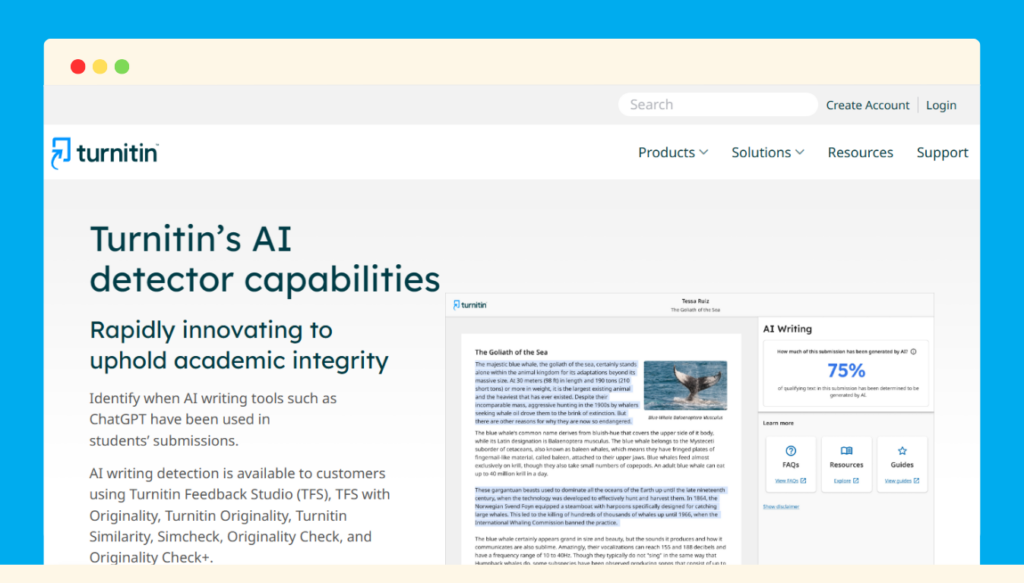
Turnitin is a prominent name in the realm of academic integrity and plagiarism prevention. Turnitin’s robust algorithms meticulously scrutinize documents, research papers, and essays, cross-referencing them with an extensive database that includes academic publications, websites, and previously submitted student papers. It provides educators with comprehensive reports, highlighting any instances of potential plagiarism and assisting students in refining their writing skills while promoting the importance of originality and proper citation.
Pricing: Turnitin’s pricing varies by institution and usage. It’s commonly used in educational settings.
4. Grammarly Plagiarism Checker
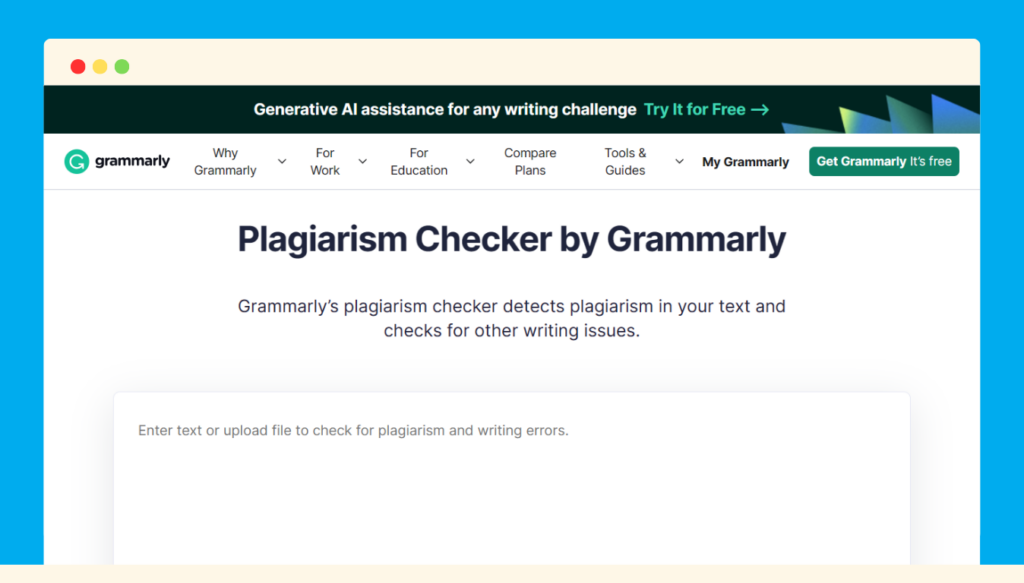
Grammarly Plagiarism Checker is renowned for its grammar and spell-checking capabilities. But it also offers a reliable plagiarism checker in its premium version. Grammarly’s online plagiarism checker compares your text to extensive databases of web pages and academic papers. It promptly alerts you to any potential matches, and for additional features, Grammarly Premium can flag specific sentences, provide source references, calculate an originality score, and offer comprehensive writing feedback and corrections across various dimensions. It aids in proper citation and ensures originality. Moreover, it allows you to rescan your work after revisions, giving you confidence in the authenticity of your content.
Pricing: Grammarly offers a free version with basic grammar and spelling checks. The premium version, which includes advanced plagiarism checking, starts at $12 USD/month when billed annually.
5. Quetext
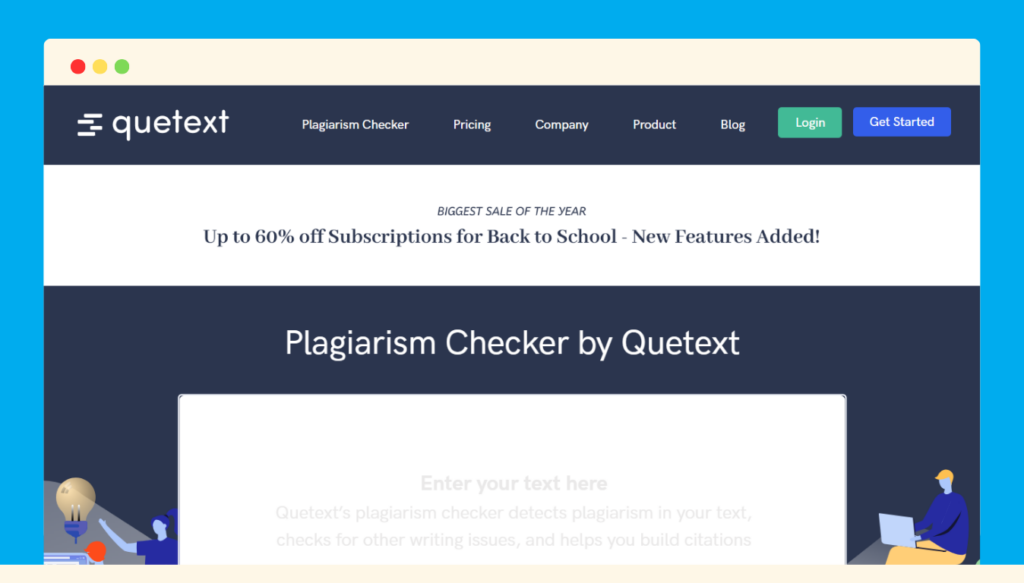
Quetext plagiarism checker offers a free version that allows you to check your content for plagiarism with a 500-word limit per search. Quetext scans your text against an extensive database of academic papers, articles, and websites, ensuring a thorough plagiarism check. It employs DeepSearch technology to delve deep into the web, increasing the chances of detecting even obscure instances of plagiarism. It also offers real-time checking, ensuring that you get instant feedback on your content’s uniqueness.
Pricing: Quetext offers a free version with limitations. The premium version, starting at $8.80/month offers 100,000 Words per month and enhanced features.
6. SmallSEOTools Plagiarism Checker
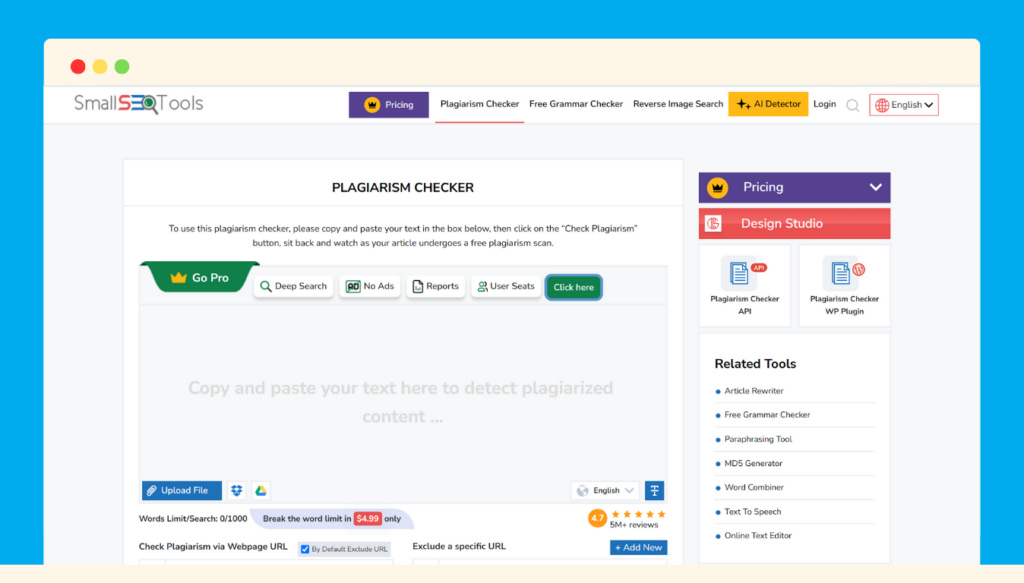
SmallSEOTools Plagiarism Checker alongside its plagiarism checker, offers a suite of SEO-related tools free of cost, making it a handy resource for digital marketers and bloggers. It’s easy to use and accessible online. SmallSEOTools often provides reference information about the source, aiding in proper citation. It also offers many text analysis tools that provide insights into the writing quality, and readability enhancing the overall impact of the content such as AI content Detector, Sentence Rephraser etc.
Pricing: SmallSEOTools is free to use online. Its basic plan starts at $9.80 USD/Month and comes with a WordPress plugin.
7. Plagscan
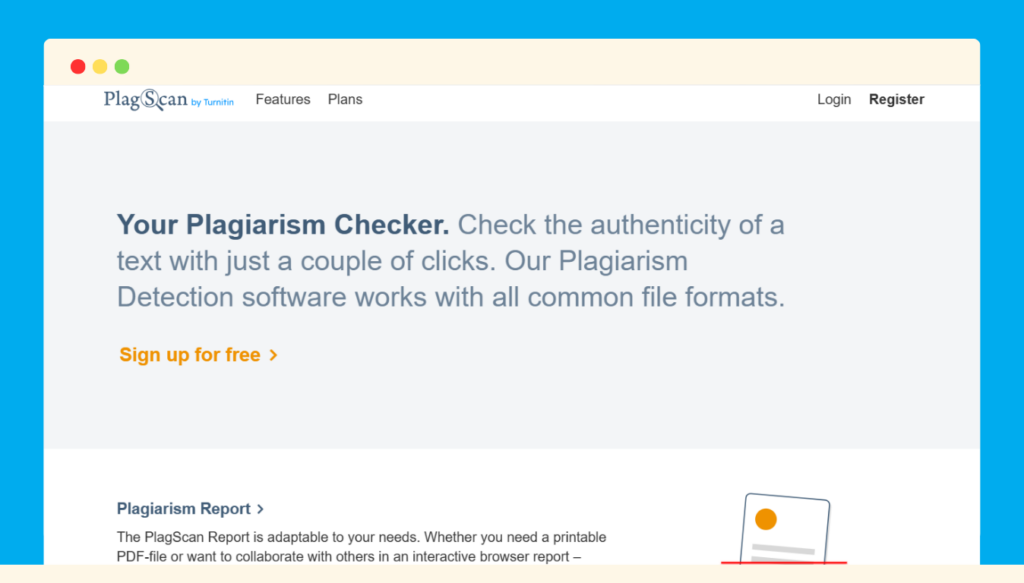
Plagscan by Turnitin offers a limited number of free checks and provides comprehensive results highlighting similarities to external sources. It delivers precise and dependable results, flagging any potential instances of plagiarism and providing detailed reports. It requires the user to sign in for free to check for plagiarism. Plagscan caters to both academic and professional purposes, making it indispensable for educators, students, writers, and organizations.
Pricing: Plagscan offers limited free checks and requires the user to sign up, and their pricing plans start at $5.99/month for 6000 words.
8. Unicheck
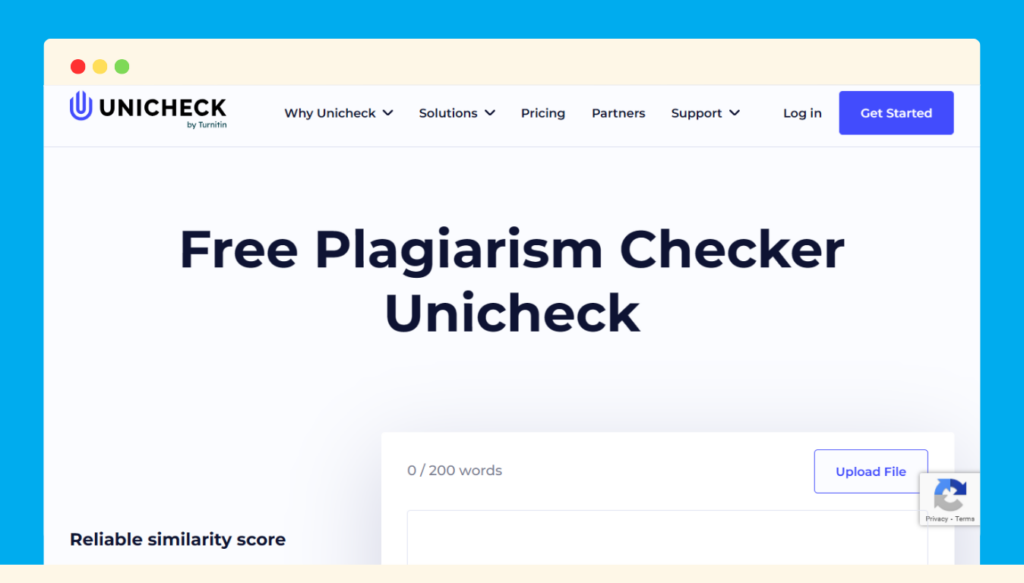
Unicheck by Turnitin is a powerful and user-friendly plagiarism checker and educational technology tool designed to ensure academic integrity and originality in educational institutions. With its advanced algorithms. It integrates seamlessly with Learning Management Systems (LMS) and is favoured by educators for its comprehensive feedback. It has a 200-word limit per search in the free version.
Pricing: Unicheck is no longer offering paid plans and they suggest a Turnitin similar tool now for paid plans.
9. Scribbr
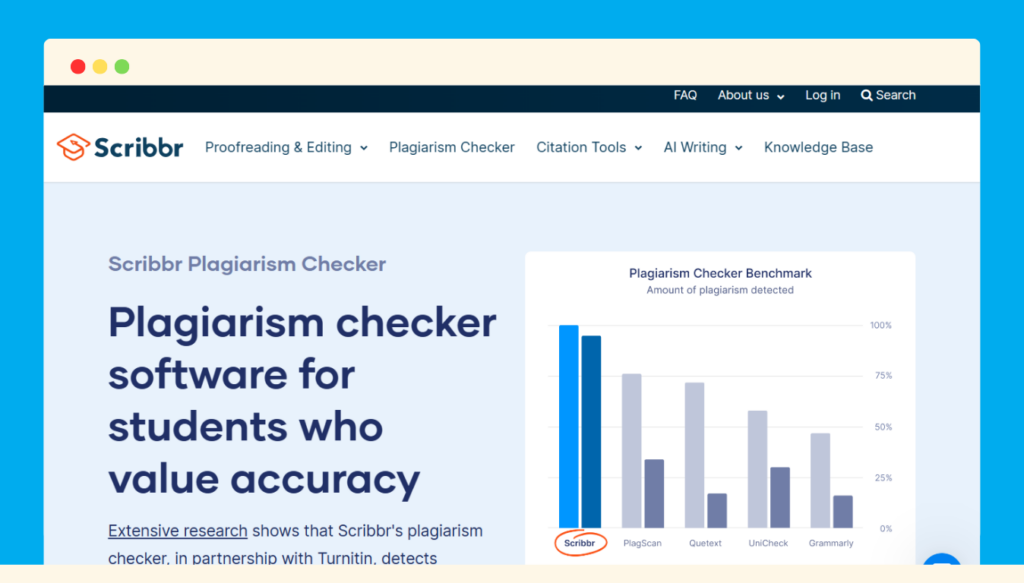
Scribbr is a popular academic writing and editing service that offers a plagiarism checker tool as part of its suite of services. Scribbr’s checker excels in identifying plagiarism in heavily edited source texts resembling accidental paraphrasing. It ensures document privacy by neither storing, selling to third parties, nor sharing uploads with academic institutions, deleting data after 30 days or upon user request.
Pricing: Scribbr’s pricing for its plagiarism checker typically varies depending on the number of words you want to check and the turnaround time. Its paid plans start at around $19.95–$39.95 for different word counts. Prices increase for larger word counts and faster turnaround times.
10. Viper
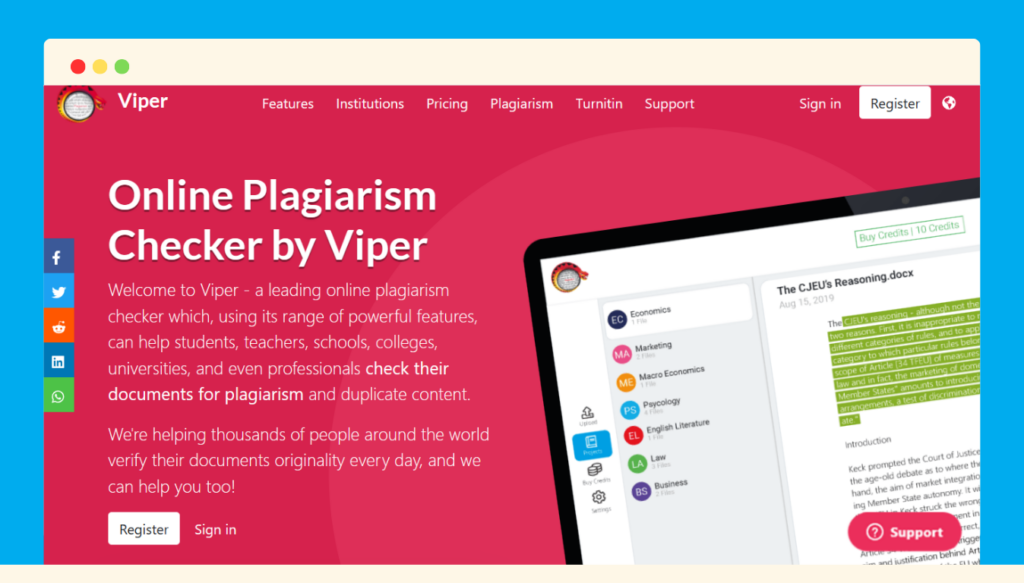
Viper now known as scanmyessay is another plagiarism checker tool that is widely used by students and educators. Viper’s plagiarism checker scans your document for potential matches against its 10 billion+ sources, which also includes academic papers. It provides a detailed report highlighting any instances of plagiarism, along with a percentage of similarity. Viper also offers a citation generator to help users properly reference their sources. It claims to be a cost-effective alternative to Turnitin.
Pricing: Viper offers both free and premium versions. The free version allows limited usage and may have restrictions on the number of scans you can perform. The premium version typically charges around £0.20 per 1000 words.
11. PlagiarismCheckerX
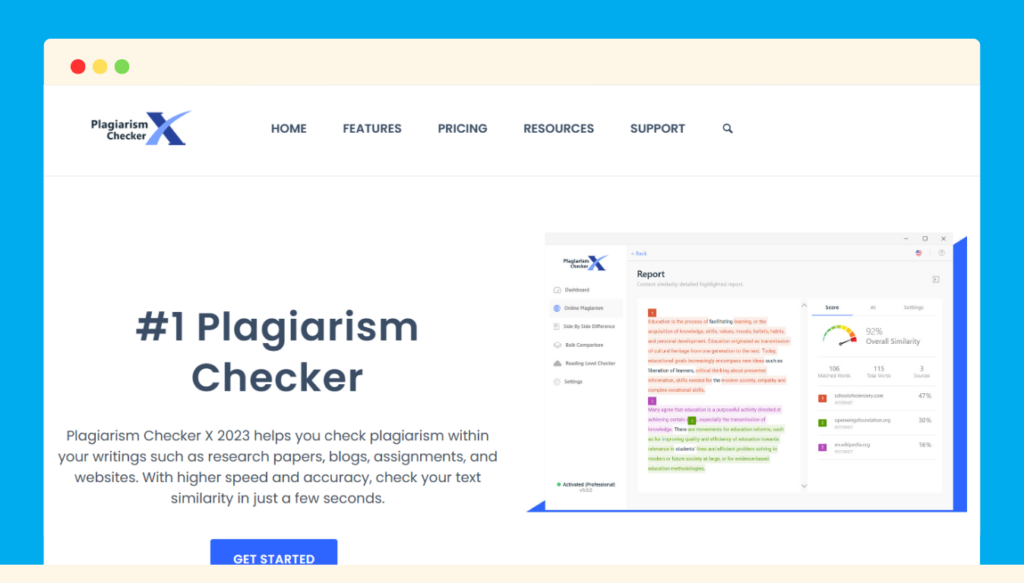
PlagiarismCheckerX is a paid software that offers a user-friendly interface, bulk checking, and cross-platform compatibility. It is particularly valuable for educators, helping them identify and address plagiarism issues in student submissions. Additionally, it offers a range of features, including side-by-side comparisons and citation suggestions,
Pricing: PlagiarismCheckerX offers a free trial plan with limited features and paid plans starting at $39.95/year.
Best Free and Paid AI Content Detectors
Thanks to advancements in artificial intelligence, there are now powerful AI content writers like ChatGPT that produce content so convincingly that you cannot identify whether it is written by humans or AI. Fortunately, the market offers AI content detectors to assist you in verifying the uniqueness and accuracy of your work. Let’s take a closer look at a variety of the best free and paid AI content detectors available.
1. GPTZero
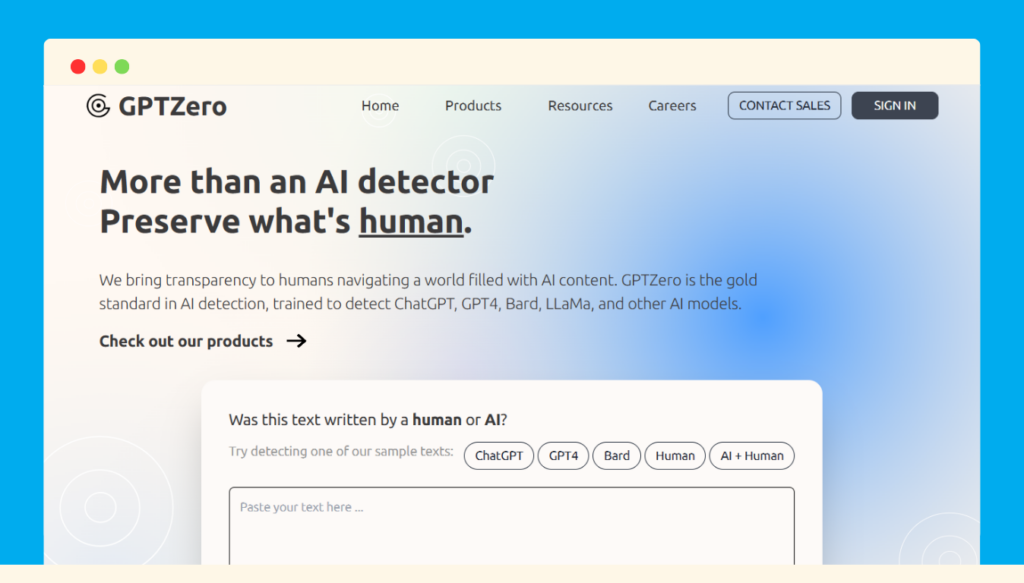
GPTZero leads in AI document detection, distinguishing content authored by large language models like ChatGPT. Trained on diverse datasets with a focus on English prose, it has served over 2.5 million users globally and collaborates with 100+ organizations across various sectors, ensuring plagiarism-free content. It has a 5000-character limit per search.
Pricing: GPTZero is free to use and no sign-up is required.
2. Winston AI
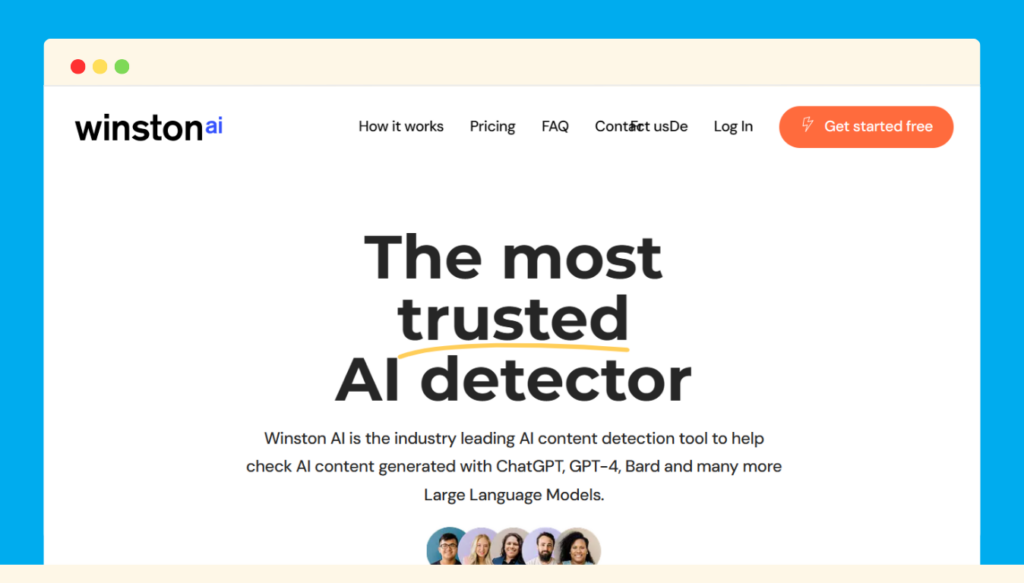
Winston AI is a leading tool that’s really good at spotting AI-generated text, including content produced by ChatGPT, with an impressive 99.6% accuracy. It also helps catch copied content, so your work stays original. It works well for text in English, French, Spanish, and German.
Pricing: Winston AI offers a free trial plan for up to 2,000 word scans. Its paid plans start at $12/month and scan up to 80,000 Words.
3. Originality.AI

Originality.ai boasts exceptional accuracy, reliably identifying all GPT-4 generated texts and even spotting content created with paraphrasing tools. It provides a clear percentage, effectively highlighting text to gauge the likelihood of AI involvement while minimizing false positives. This makes it a valuable tool for ensuring content authenticity and integrity in various contexts, from academic writing to professional content creation.
Pricing: It has a free AI Chrome extension with 50 credits that can scan 5000 words. Its paid version starts at $14.95/month which gives 2000 credits. It also has a pay-as-you-go option.
4. Sapling
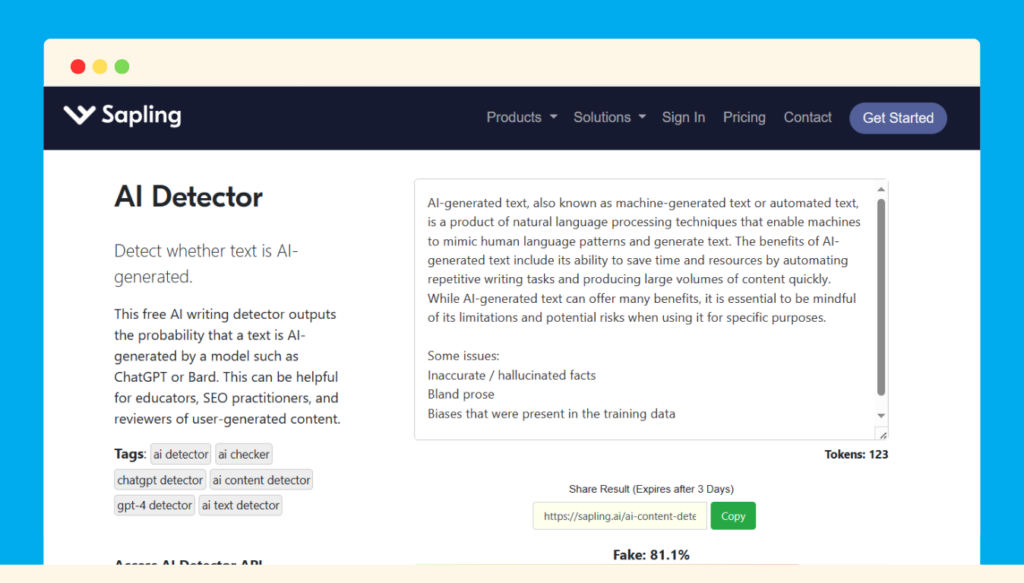
Sapling is exceptionally user-friendly—just paste your text, and it gives quick results. It provides very less false positives. But remember, the high AI detection rate and low false positives in their benchmarks may not apply to every type of content.
Pricing: It is one of the best free AI content detectors.
5. Zero GPT
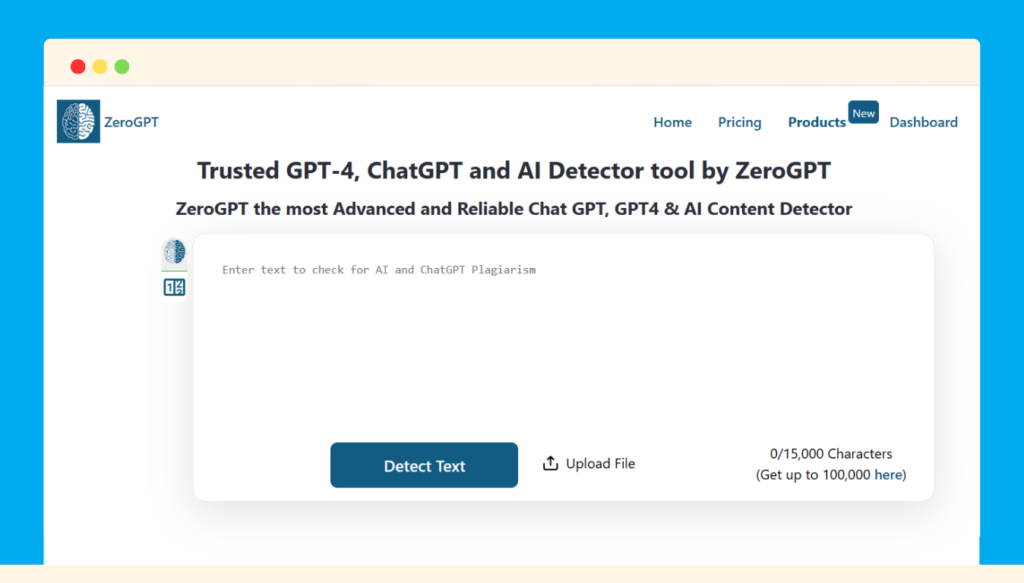
ZeroGPT offers support for multiple languages and has an easy-to-use interface, making it a valuable tool for freelancers, writers, and copywriters alike. Notably, it excels in detecting paraphrased content effectively.
Pricing: It is free to use.
6. Copyleaks
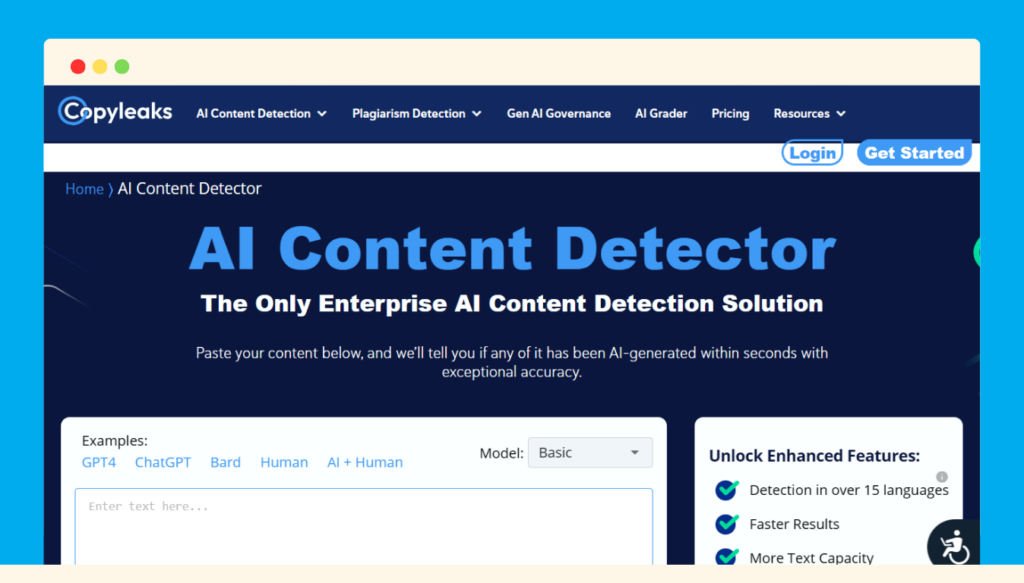
Copyleaks utilizes AI and machine learning to scan the internet and identify even the slightest instances of plagiarism. It is known for its high accuracy in detecting AI content but it is a bit hard to use.
Pricing: For Copyleak’s free version you need to sign up. You can do limited checks in the free version. Its paid version costs $9.16/ month for 300,000 words or 1200 pages.
7. Turnitin Feedback Studio
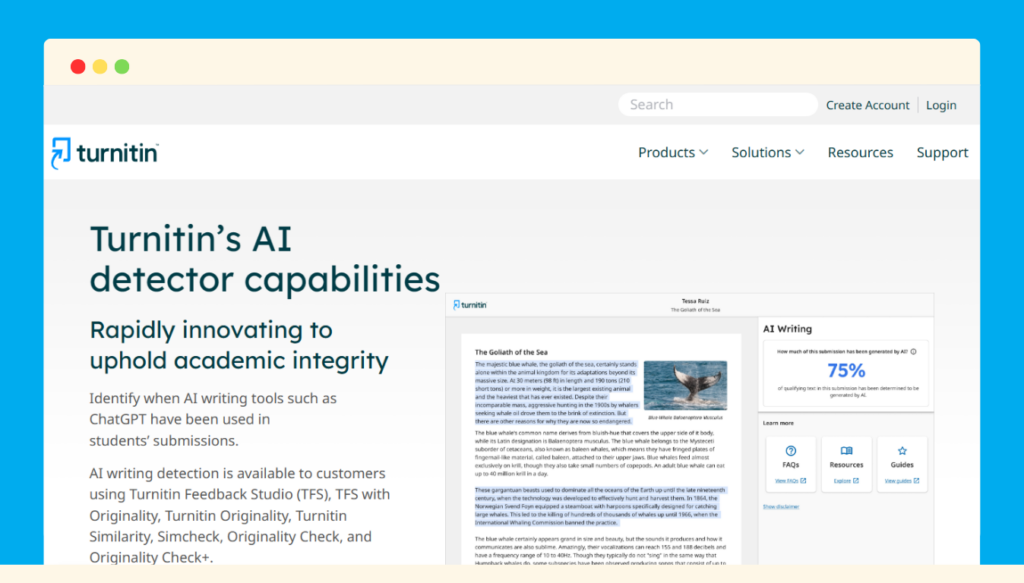
Turnitin Feedback Studio is a trusted tool in educational institutions for maintaining academic integrity. It employs AI algorithms to compare student submissions with an extensive database of academic content, research papers, and articles.
Pricing: Varies by institution (primarily used in educational settings)
